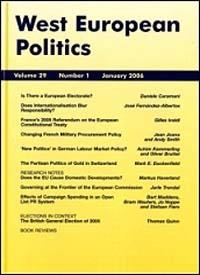Europeanisation through Cooperation? EU Democracy Promotion in Morocco and Tunisia
Vera van Hüllen – 2012
The Arab spring has highlighted once more the European Union's failure to bring about democratic change in the Middle East and North Africa through its Mediterranean democracy promotion policy. However, Arab authoritarian countries engage to different degrees in cooperation on democracy promotion, giving the EU more or less influence on domestic institutional change related to political participation, respect for human rights, and the rule of law. A comparison of domestic change and cooperation in Morocco and Tunisia in 2000-2010 shows that the EU has been instrumental in supporting and potentially reinforcing domestic reform initiatives. Yet the EU cannot trigger domestic institutional change in the first place. The degree of political liberalisation determines the fit between the domestic political agenda and external demands for reforms. It reflects different "survival strategies" between political inclusion and exclusion and is therefore a scope condition for rather than the result of cooperation and change. Adapted from the source document.

